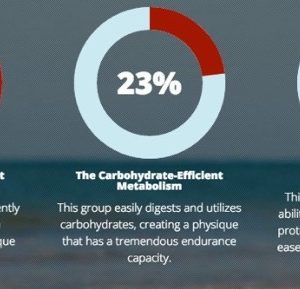Working with Dr. Phil
Working with Dr. Phil
 One of the things that drew me to Matt Dixon and Purplepatch Fitness was his belief that success in this sport comes from a smart approach that integrates training, recovery, functional strength and nutrition. When I sat down with Matt at the end of my season last year to talk about the good, the bad and the ugly, we both agreed that I needed to make some changes for 2016. If you read my first blog of the year, then you know that one of the major changes I made was to my mindset. The other change, and one that has been equally as important, has been nutrition. In fact, the changes that have occurred because of my nutrition are what have led to a greater belief in myself.
One of the things that drew me to Matt Dixon and Purplepatch Fitness was his belief that success in this sport comes from a smart approach that integrates training, recovery, functional strength and nutrition. When I sat down with Matt at the end of my season last year to talk about the good, the bad and the ugly, we both agreed that I needed to make some changes for 2016. If you read my first blog of the year, then you know that one of the major changes I made was to my mindset. The other change, and one that has been equally as important, has been nutrition. In fact, the changes that have occurred because of my nutrition are what have led to a greater belief in myself.
For me, nutrition has been somewhat of a struggle since I started competing in triathlon. Not because of my weight, but more because of all the other things that I juggle outside of triathlon, and because how much of a factor it plays in training and racing. My priority was always to make sure I got my training in, and if I fueled properly for the day then that was a bonus. I tried to get the basics right, like fueling during and immediately following each session, but then outside of that there was no plan. If I could get in my meals I did, but if not I would make up for it later. This led to a lot of inconsistency, which then led to inconsistency in my training. Over days, weeks, months and now years that makes for a lot of inconsistencies, which accumulates and starts to have its affects. I never really knew if I was getting it right, but most of the time I knew when I was getting it wrong. I would look frail, my training would start to suffer and then I would have to take a few days to let my body recuperate and replenish.
The problem was, I didn’t know what “enough” was. I wasn’t worried about putting on weight, but eating a lot can be uncomfortable and unpleasant and can also have negative effects on training. I also believe that that the types of calories we consume matter in improving body composition and performance. I don’t believe it’s simply calories in, calories out. If that were the case then it shouldn’t matter if my 400 calories were coming from my large caramel latte or an entire meal of protein, veggies and carbs. I should feel and perform the same. But I quickly found out it did matter. Like putting regular gasoline in my diesel engine. I’m pretty sure my car wouldn’t run the same and that would be a costly mistake I hope I never make!
I don’t particularly like the word “diet” because I think it automatically implies eating less and depriving yourself of the pleasure food can give us. I also think that diets tend to be fads that come and go, so whenever I make a change in the way I eat I view it more as creating a healthy habit that becomes routine. I like to think of food as a way to honor my body for what it does for me. I expect so much from it on a daily basis and I’m so grateful for what it gives me that I want to make sure it has what it needs to do its job. But on the other hand, I also had the mentality that because I trained enough hours I shouldn’t have to pay attention to how much I ate, or restrict myself of anything in particular because I “deserved” it. And while I still feel that way, I’ve changed a bit in that I now see my performance is a function of what I eat. Now I have less of a desire to indulge in things simply for the sake of indulgence.
 Despite my hesitation and skepticism to follow a strict nutrition plan by someone who signed his e-mails “sent from food jail”, I enlisted the help of Dr. Philip Goglia of PFC Nutrition to see if this was perhaps one of the missing links for me. I flew down to L.A. to meet with him in person for my initial appointment. One of the first things that appealed to me about him and his methodology was that his plans were specific to each client based on their body composition, lifestyle and metabolic type. I didn’t just fall under the “endurance athlete who trains a lot” category. He spent time getting to know me and learn my training patterns. He did an initial assessment of body weight and body fat and a blood panel that included TC, HDL, TRG, LDL, non-HDL, TC/HDL and GLU. We talked about what these numbers meant in terms of overall health and how they related to performance. I left that appointment with a nutrition plan in hand and an excitement about how this could change my performance if it actually “worked.”
Despite my hesitation and skepticism to follow a strict nutrition plan by someone who signed his e-mails “sent from food jail”, I enlisted the help of Dr. Philip Goglia of PFC Nutrition to see if this was perhaps one of the missing links for me. I flew down to L.A. to meet with him in person for my initial appointment. One of the first things that appealed to me about him and his methodology was that his plans were specific to each client based on their body composition, lifestyle and metabolic type. I didn’t just fall under the “endurance athlete who trains a lot” category. He spent time getting to know me and learn my training patterns. He did an initial assessment of body weight and body fat and a blood panel that included TC, HDL, TRG, LDL, non-HDL, TC/HDL and GLU. We talked about what these numbers meant in terms of overall health and how they related to performance. I left that appointment with a nutrition plan in hand and an excitement about how this could change my performance if it actually “worked.”
No more than two weeks into diligently following my plan, there was a noticeable difference in my energy levels throughout the day. I was still in post-season training mode so my volume and intensity were low, but I was amazed at how my energy wasn’t yo-yoing throughout the day and I wasn’t ready to crash at 7pm! Those weeks became months and training loads started to change and I started to feel like a different athlete. It was a totally new feeling and one that is hard to describe. I felt like I was discovering my potential all over again. I wasn’t hitting a wall at the same power and pace I used to. Zone 3 started to feel like zone 2. I was waiting for that “feeling” to come that would cause my legs to burn, and it wasn’t coming as quickly. I almost felt like I didn’t know how to train as this new athlete. What were my zones now? How hard and far could I push myself? I was so used to the way I had always felt, that this was almost foreign to me! But at the same time, it was slowly building a quiet confidence in me that I was using to change my mindset.
Before I raced NOLA 70.3, I flew back down to L.A. to meet with Phil and have my numbers retested. I wanted to see if the way I was feeling was because of changes that were going on inside my body due to my change in nutrition. I felt like this would quiet those “maybe this is all just in your head” thoughts. Sure enough, there was quite a drastic change in everything in just four months. By significantly INCREASING my caloric intake on a daily basis, these were the changes:
- I lost 9.1lbs of fat
- I gained 2.7lbs of muscle
- I lost 6.1% body fat
- My total cholesterol dropped 22 points
- My HDL went from 82 to 88
- My LDL went from 118 to 55
- And most interestingly…my total cholesterol/HDL ratio went from 2.2 to 1.8 and according to Phil this is “rare air.” This number is an indication of metabolic efficiency and 1.8 is extremely efficient.
Add all these things together and you can see why I was feeling slightly different in my training. I left that appointment with confidence and was ready to test my new fitness in NOLA.
As interesting as this has been for me, I know it is not “the answer” or the “magic sauce” to my evolution. And it hasn’t made me an athlete that I didn’t have the potential to be. There is not a single component that is responsible for success in the sport of triathlon. It is through trial and error of many different ingredients where you find the right recipe for you. I believe that nutrition was one ingredient that was missing in my recipe. By finally being able to get this piece right, I have given my body the best shot at reaching it’s physical potential and at positively adapting to my training load. I’m fueling with purpose for performance and recovery. I’m no longer playing the guessing game when it comes to nutrition and I’m leaving nothing on the table. Sometimes the biggest gains can come from the smallest details!



